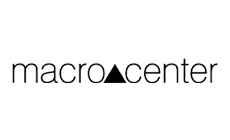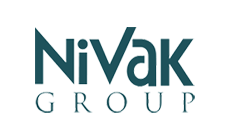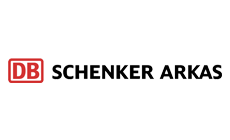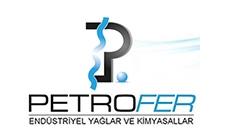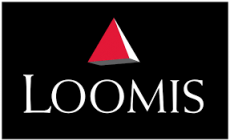- Home
- Institutional
- Services
- Electrical and Contracting Services
- Access Control Systems
- Burglar Alarm Systems
- CCTV – Video Surveillance Systems
- City Vehicle Parking Management Systems
- Emergency Exit and Fire Escape Systems
- Environmental and Security Systems
- Fiber Optic Infrastructure Systems
- Fire Detection and Alarm Systems
- License Plate Identification Systems
- Network Communication Systems
- Under Vehicle Imaging Systems
- Video Intercom Systems
- X-Ray Inspection and Metal Detection Systems
- Electronic Security Systems
- Power Panels and Sub-Distribution Panels
- High Current Cabling Services
- Socket Distribution Systems
- Electrical Tray and Cable Carrier Systems
- Busbar System
- Lighting System
- Emergency Lighting System
- Basic Grounding
- General Field Grounding
- Operation and Protection Grounding
- Active Lightning Rod System
- Compensation Power System
- UPS Systems
- Automation Solutions
- Project Consulting
- Electrical and Contracting Services
- Blog
- Contact
- Home
- Institutional
- Services
- Electrical and Contracting Services
- Access Control Systems
- Burglar Alarm Systems
- CCTV – Video Surveillance Systems
- City Vehicle Parking Management Systems
- Emergency Exit and Fire Escape Systems
- Environmental and Security Systems
- Fiber Optic Infrastructure Systems
- Fire Detection and Alarm Systems
- License Plate Identification Systems
- Network Communication Systems
- Under Vehicle Imaging Systems
- Video Intercom Systems
- X-Ray Inspection and Metal Detection Systems
- Electronic Security Systems
- Power Panels and Sub-Distribution Panels
- High Current Cabling Services
- Socket Distribution Systems
- Electrical Tray and Cable Carrier Systems
- Busbar System
- Lighting System
- Emergency Lighting System
- Basic Grounding
- General Field Grounding
- Operation and Protection Grounding
- Active Lightning Rod System
- Compensation Power System
- UPS Systems
- Automation Solutions
- Project Consulting
- Electrical and Contracting Services
- Blog
- Contact
Automation Solutions
Dijit Technology
Automation Solutions
What are Automation Solutions?
Automation solutions include processes, tools and software developed to enable technological systems to operate without or with minimal human intervention. These solutions are used in a wide range of areas from factories to commercial enterprises, from public services to agriculture, with the aim of increasing efficiency, reducing costs and ensuring that processes operate without errors. Automation is considered one of the most important building blocks of digital transformation today and has become the key to gaining competitive advantage in the business world.
Scope of Automation Solutions
Automation solutions are offered in a wide range that varies by sector. There are many automation systems developed to increase the operational efficiency of businesses. These systems can generally be grouped under the following headings:

Industrial Automation:
Automation systems used in factories and production facilities minimize human intervention by controlling machines and production processes. Robotic arms, programmable logic controllers (PLC), sensors and other automation components accelerate the production processes of factories, reduce production costs and ensure consistency in product quality.
Office and Business Process Automation:
Software solutions that automate routine and repetitive business processes of businesses allow for more efficient use of the workforce. Automation software used in areas such as accounting, human resources, and customer relationship management (CRM) speeds up business processes and reduces errors. This type of software offers great convenience, especially in the management of large data volumes.
Energy Management Systems:
Automation solutions are also widely used in the field of energy management. Automatic systems that monitor and optimize energy consumption help businesses reduce energy costs and provide environmentally friendly energy use. Smart energy systems used in buildings increase energy efficiency by automatically controlling elements such as lighting, heating and cooling.
Building Management Systems:
Large buildings and facilities have complex infrastructure requirements. Building management systems (BMS) provide automatic control of lighting, security, ventilation, fire alarms and other infrastructure systems. These solutions increase occupant comfort while significantly reducing operating costs.
Agricultural Automation:
Automation in the agricultural sector enables automatic management of processes such as planting, irrigation, fertilization and harvesting. Equipping agricultural machinery with robotic systems provides farmers with a more efficient production opportunity, while smart agricultural applications have made it possible to monitor and manage plant development, soil conditions and weather conditions through sensors.
Logistics and Warehouse Automation:
Automation solutions in warehouse management and logistics processes enable automatic execution of processes such as material handling, stock management, order preparation and transportation. These systems help manage inventory correctly, shorten delivery times and increase customer satisfaction.
Robotic Process Automation (RPA):
RPA, which is used especially in the service sector, automates repetitive and rule-based business processes. Used in sectors such as finance, insurance, healthcare and public, this technology increases the speed of operational processes and minimizes errors thanks to its large data processing capacities.
Advantages of Automation Solutions
Automation solutions offer businesses a number of important advantages. Optimizing business processes both increases the efficiency of businesses and helps reduce operational costs. Here are the prominent advantages of automation:
Increased Productivity:
Automation solutions enable business processes to be carried out faster and more effectively. The smooth operation of processes without the need for human intervention saves businesses time. In addition, the ability of machines and systems to operate uninterruptedly 24/7 increases production capacity.
Reducing Error Rate:
Human errors can be a significant cost factor in manufacturing and service industries. Automation eliminates human errors in repetitive and complex tasks, allowing business processes to be managed more reliably. Keeping the error rate to a minimum is especially important in sensitive operations (such as the healthcare sector or production lines).
Cost Reduction:
Automation helps businesses reduce labor costs. In addition, resource use is optimized and waste is reduced by managing processes more efficiently. Automation systems that increase energy efficiency also have the potential to reduce operating costs.
Security and Risk Management:
Especially in hazardous work areas, automation solutions increase worker safety. When hazardous environments and tasks to which humans may be exposed are performed by robots or automated systems, the number of work accidents is significantly reduced.
Traceability and Data Analysis:
Automation systems offer great advantages in terms of monitoring and reporting processes. Thanks to these systems, data collected at every stage of business processes can be analyzed to evaluate business performance and take remedial steps. Data analytics helps businesses determine their future strategies.
The Future of Automation
In a world undergoing digital transformation, automation solutions are becoming increasingly important. With the development of technologies such as artificial intelligence (AI), machine learning, and big data analytics, automation solutions are becoming more intelligent and autonomous. These technologies enable systems to have the ability to continuously learn and improve, so businesses can continuously optimize their processes.
In the coming years, automation solutions will be needed in more industries and businesses. The effects of automation will become more apparent, especially in sectors such as healthcare, finance, logistics and agriculture. In addition, automation will play a major role in energy management and efficient use of resources in terms of environmental sustainability.
Conclusion
Automation solutions are vital to gaining competitive advantage and making processes more efficient in today’s business world. By automating repetitive and complex business processes, businesses can reduce costs, increase efficiency and minimize human errors. With the advancement of technology, automation solutions are becoming more intelligent, flexible and adaptable. This offers businesses the opportunity to succeed even in the uncertain conditions of the future.

Get a Quote Now!
By contacting us, you can ask your questions about our services and get a quick quote.


